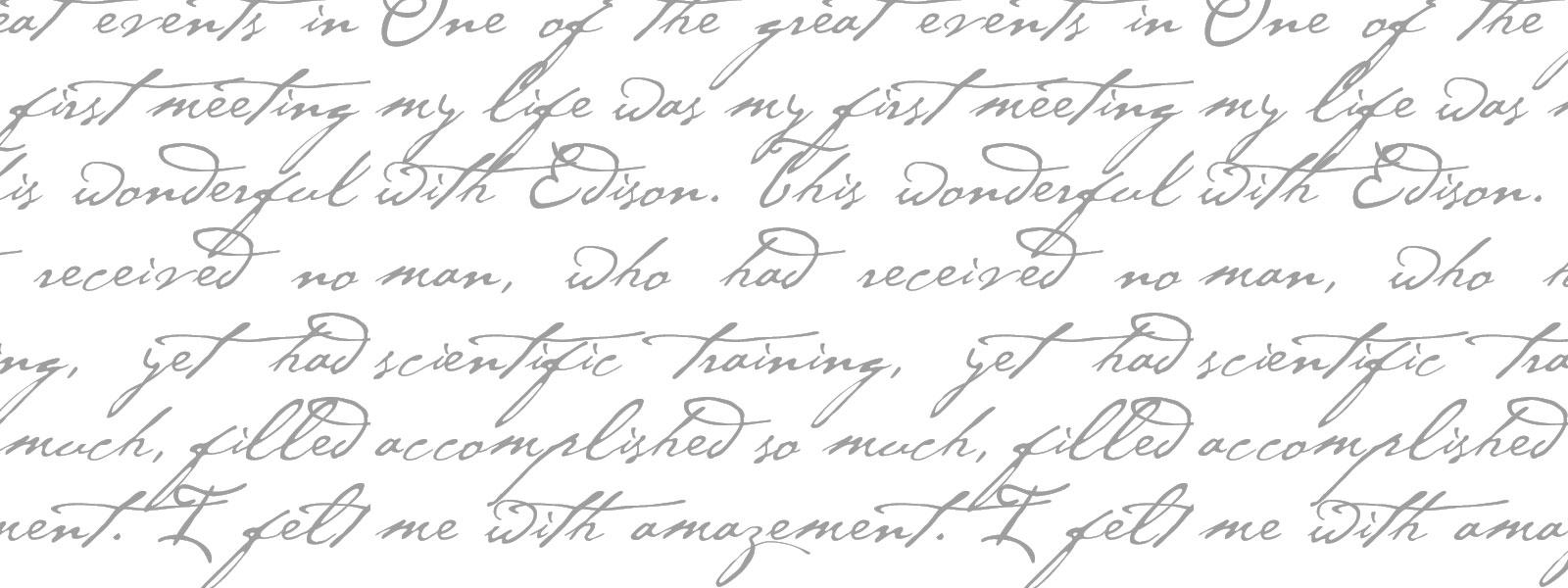
Nikola Tesla Quotes - Page 4
The progressive development of man is vitally dependent on invention. It is the most important product of his creative brain. Its ultimate purpose is the complete mastery of mind over the material world, the harnessing of the forces of nature to human needs. This is the difficult task of the inventor who is often misunderstood and unrewarded. But he finds ample compensation in the pleasing exercises of his powers and in the knowledge of being one of that exceptionally privileged class without whom the race would have long ago perished in the bitter struggle against pitiless elements. Speaking for myself, I have already had more than my full measure of this exquisite enjoyment; so much, that for many years my life was little short of continuous rapture.
February, 1919Source:
One of the great events in my life was my first meeting with Edison. This wonderful man, who had received no scientific training, yet had accomplished so much, filled me with amazement. I felt that the time I had spent studying languages, literature and art was wasted; though later, of course, I learned this was not so.
April, 1921
Am I think over it now it seems to me, that only men absolutely stricken with blindness, insensible to the greatness of nature, can hold that this planet is the only one inhabited by intelligent beings.
January 4th, 1901
Our first endeavors are purely instinctive prompting of an imagination vivid and undisciplined. As we grow older reason asserts itself and we become more and more systematic and designing. But those early impulses, though not immediately productive, are of the greatest moment and may shape our very destinies. Indeed, I feel now that had I understood and cultivated instead of suppressing them, I would have added substantial value to my bequest to the world. But not until I had attained manhood did I realize that I was an inventor.
February, 1919Source:
Behold the dark threat
veiled in words of flame
One child in misery
is a nation's shame!
The apparatus described by me comprises four circuits, peculiarly arranged and carefully attuned, so as to secure the greatest possible flow of electrical energy through them. The generator is a transformer of my invention and the oscillations employed are of a kind which are now known in technical literature as the Tesla currents. Every one of these elements, even to the last detail, is contained in the Marconi patent which was involved in the suit, and its use constitutes an infringement of all the fundamental features of my wireless system.
March 20th, 1914Source:
So astounding are the facts in this connection, that it would seem as though the Creator, himself had electrically designed this planet...
January 7th, 1905
Before I put a sketch on paper, the whole idea is worked out mentally. In my mind I change the construction, make improvements, and even operate the device. Without ever having drawn a sketch I can give the measurements of all parts to workmen, and when completed all these parts will fit, just as certainly as though I had made the actual drawings. It is immaterial to me whether I run my machine in my mind or test it in my shop. The inventions I have conceived in this way have always worked. In thirty years there has not been a single exception. My first electric motor, the vacuum wireless light, my turbine engine and many other devices have all been developed in exactly this way.
July, 1949Source:
The scientific man does not aim at an immediate result. He does not expect that his advanced ideas will be readily taken up. His work is like that of a planter -- for the future. His duty is to lay foundation of those who are to come and point the way.
June, 1900
The day when we shall know exactly what "electricity" is, will chronicle an event probably greater, more important than any other recorded in the history of the human race. The time will come when the comfort, the very existence, perhaps, of man will depend upon that wonderful agent.
February 24th, 1893